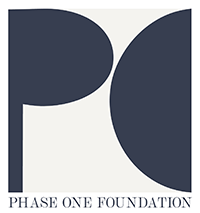Our Featured Research Page lists cancer prevention, treatment and quality of life studies enrolling people with or at high risk for hereditary cancers. Sign up for our community newsletter to stay up-to-date on the latest hereditary cancer research.
Search Results: Treatment + Ovarian Cancer (5 results)

Treatment
Treatment study for people with advanced solid tumors
Study of a New InvestigationaI Inhibitor to Treat People with Advanced Solid Tumors
The study will test if an investigational treatment, XL309, is safe and works when used alone or in combination with a PARP inhibitor to treat people with some advanced solid tumors.

Treatment
Treatment study for people with advanced breast, ovarian or pancreatic cancer and an inherited or tumor BRCA mutation
Combining the Immunotherapy Dostarlimab and PARP Inhibitor Niraparib for Advanced or Metastatic Breast, Ovarian or Pancreatic Cancer with an Inherited or Tumor BRCA Mutation
This study is looking at the effectiveness of combining a PARP inhibitor called niraparib and an immunotherapy called dostarlimab for treating people with an inherited BRCA mutation (found with genetic testing) or a tumor mutation (found through tumor testing) who have breast, pancreatic, ovarian, fallopian tube or primary peritoneal cancer that is metastatic or advanced and cannot be removed by surgery (unresectable).

Treatment
Treatment study for people with advanced solid tumors
Treating Metastatic Solid Tumors with an Inherited or Acquired Gene Mutation Using the PARP Inhibitor Talazoparib
This study is looking whether the drug Talazoparib (also known as Talzenna) is safe and effective for treating people with advanced solid cancers (including breast, gastric, ovarian, pancreatic, prostate or other solid tumors) in people with an inherited mutation (found through genetic testing) or an acquired mutation (found with biomarker testing) in ATM, ATR, BRCA1, BRCA2, BRIP1, BAP1, BARD1, CDK12, CHEK1, CHEK2, IDH1, IDH2, MRE11A, NBN, PALB2, RAD50, RAD51, RAD51B, RAD51C, RAD51D, RAD54L or other genes.

Treatment
Treatment study for people with advanced solid tumors, including triple-negative breast, ovarian, pancreatic and prostate cancer
NUV-868 Alone and in Combination With PARP Inhibitors in Patients With Advanced Solid Tumors
This study will test how safe and effective the experimental drug NUV-868 is by itself and in combination with a PARP inhibitor in people with advanced solid tumors. The first part of the study will include people with any solid tumor type, and the second part will include people with triple-negative breast, ovarian, pancreatic or prostate cancers only.

Treatment
Advanced ovarian, breast, prostate or pancreatic cancer
Investigational PARP Inhibitor AZD5305 Alone or Combined With Other Anti-cancer Agents in People With Advanced Solid Tumors (PETRA)
PETRA is studying a new PARP inhibitor AZD5305 taken either alone or combined with other treatments in people with advanced ovarian, breast, prostate or pancreatic cancer with an inherited or tumor mutation in: BRCA1/2, PALB2, RAD51C or RAD51D. The treaments participants receive will depend on their cancer type, mutation and when they join the study.


